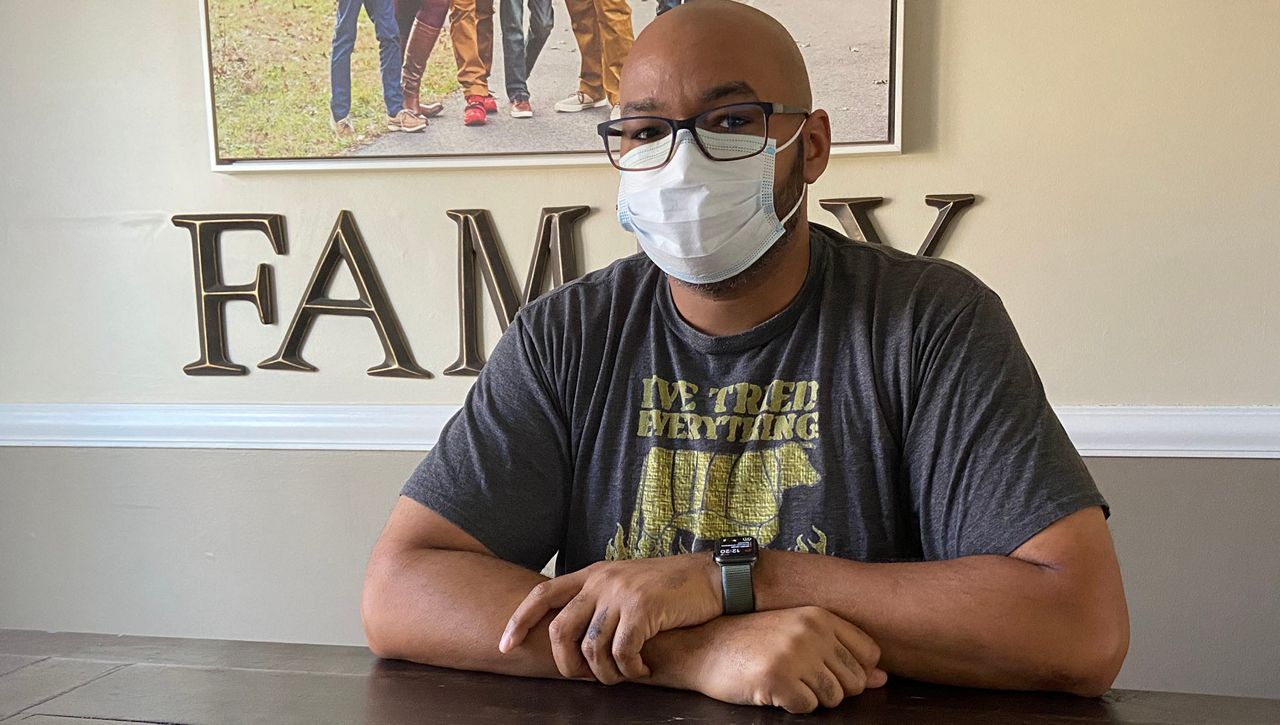LOUISVILLE, Ky. — This spring, after several months of research, many hours at the shooting range, and a serious conversation with his wife, Jason Fisher bought a Springfield Armory Hellcat 9mm handgun.
“As far as I know, it’s the highest magazine capacity in the smallest package on the market,” Fisher, 42, told Spectrum News 1.
A first time gun owner, Fisher’s purchase was driven by a raft of considerations, including the 2018 racially-motivated murders at a Louisville Kroger, late nights loading DJ equipment into his vehicle, and a general sense that others may see him as a threat.
“I am not one that believes that I have a bunch of haters in the world who are trying to come and get me,” Fisher said. “But I am aware that not everybody likes to see Black people in certain places in America and I simply want to be prepared for whatever situation I'm in.”
Like Fisher, many Americans bought a gun for the first time in 2020, a year that set the record for gun sales when it was only nine months old. By the start of December, Americans had purchased more than 20 million firearms, well ahead of the 2016 record of 16.6 million, according to the firm Small Arms Analytics & Forecastings (SAAF).
The first sales surge came as lockdown orders went out across the country. SAAF estimated that 2.58 million firearms were sold in March, an 85% year-over-year increase from 2019. Sales fell in April and May, though they remained well up from the previous year. Then in June, another spike came, with industry experts attributing the sales to the racial justice protests that filled the streets of many American cities.
In August, the National Shooting Sports Foundation (NSSF), a firearms industry trade group, estimated that five million Americans bought a gun for the first time in 2020. The next month, the CEO of Smith & Wesson Brands, Inc. guessed that 2020 had already seen twice as many first-time gun buyers as a normal year.
Imri Morgenstern, who owns a firearms training business that operates out of Louisville Armory, a local gun store and shooting range, saw the surge first hand. In March, he said, the store was slammed with customers. “The day the COVID thing broke, we had a line going out of the gun store door and another wrapping around the outside of the range,” he said. “They bought every single gun and every single bullet in the store.”
The run on firearms sparked a national ammunition shortage that was made worse by the closure of production facilities to slow the spread of the virus. “Ammunition and guns, the manufacturers of both, they cannot keep up with demand,” Morgenstern said.
He’s seen a spike in demand for his training services too, giving him insight into who bought guns in 2020 and why. Morgenstern said early in the pandemic, many buyers were gun enthusiasts, people who he described as “preppers.” They were taking precautions at the onset of the pandemic by preparing for the worst. “When people are scared, they want to defend themselves,” he said.
Over the summer, he began to meet more people who talked about looters, rioters, Black Lives Matter, and Antifa. “I think the biggest motivation for this rush on guns and ammo is fear,” he said.
Fear comes in different forms though and the people buying guns in 2020 were more diverse than the older, whiter, conservatives who make up the bulk of U.S. gun owners. Data from the NSSF released over the summer showed a nearly 60% increase in Black gun buyers, larger than any other demographic group.
Fisher lives less than two miles from the Kroger where a white man killed two Black shoppers in 2018 in what police have called a hate crime. He said he knows that people who may want to do him and his family harm are often armed. And though Frisher said he's “conflict averse,” having “one more layer of protection to try to get out of a scenario was very, very appealing.”
Fisher completed gun safety courses after buying his pistol and now carries most places. He credited the course with teaching him to be more aware of his surroundings and encourageed other first-time gun owners to enroll, even if Kentucky law allows gun ownership without any training or permit. “I am of the belief that if you are going to be a gun owner, then you need to be a responsible gun owner,” he said.
Along with safety classes, Fisher bought a gun safe the same day he bought a gun. As the father of five, he's keenly aware of keeping his chidlren safe, and for good reason. Research from the advocacy group Everytown for Gun Safety shows that 2020 has seen at least 261 accidental shootings by children, resulting in 107 deaths. Other research shows the mere presence of a gun in a home increases the chances of suicide and domestic violence.
First-time gun owners need to be aware of the risks of bringing a firearm into their lives and learn to mitigate them, said Morgenstern.
"I'm a super huge supporter of the Second Amendment, but I think it comes with an enormous responsibility,” he said. "If you buy a gun, you can't just go out and feel safe because you have a gun. You really, really need to learn it."
